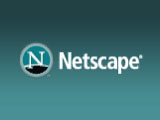AOL pulls plug on Netscape browser
The browser that brought the web to prominence is set to be killed off, as current owner AOL wields the axe as users dwindle.


Sign up today and you will receive a free copy of our Future Focus 2025 report - the leading guidance on AI, cybersecurity and other IT challenges as per 700+ senior executives
You are now subscribed
Your newsletter sign-up was successful
Netscape, the once dominant web browser credited with kick-starting the internet revolution, is being dumped by current owner AOL.
The ISP and web content company, which bought Netscape in 1999, will pull funding for future development as of 1 February, bringing to a close one of the most important stories in the history of the internet.
"While internal groups within AOL have invested a great deal of time and energy in attempting to revive Netscape Navigator these efforts have not been successful in gaining market share from Microsoft's Internet Explorer," Netscape director Tom Drapeau explained on his blog,
"Recently, support for the Netscape browser has been limited to a handful of engineers tasked with creating a skinned version of Firefox with a few extensions."
Navigator was once the ubiquitous browser, but once Microsoft woke up to the web and started leveraging Windows to get Internet Explorer onto every desktop Netscape's fortunes quickly declined.
AOL has been fighting a losing battle ever since it took the company over and despite heavy investment and the inherent flaws of Internet Explorer at that time, it never made an impact. The arrival and success of Mozilla's Firefox browser subsequently showed that it was possible to create a credible alternative to Microsoft's offering, and many felt AOL should have terminated Netscape at that point. According to NetApplications' Market Share figures, Netscape accounted for just 0.66 per cent of browser usage in December, making it the fourth most popular browser behind IE, Firefox and Safari.
Drapeau's advice to Netscape users is to switch to Mozilla Firefox, though many are likley to continue to use it for some time. Unofficial support will continue via forums such as the Netscape Community at The Netscape Unofficial FAQ. The browser itself is still available for download....for now.
Sign up today and you will receive a free copy of our Future Focus 2025 report - the leading guidance on AI, cybersecurity and other IT challenges as per 700+ senior executives
-
 Channel your innovation: Why IT partnerships are essential for the future of retail
Channel your innovation: Why IT partnerships are essential for the future of retailIndustry Insights A shared understanding and commitment to overcoming hurdles is key
-
 Pulsant unveils high-density data center in Milton Keynes
Pulsant unveils high-density data center in Milton KeynesNews The company is touting ultra-low latency, international connectivity, and UK sovereign compute power to tempt customers out of London